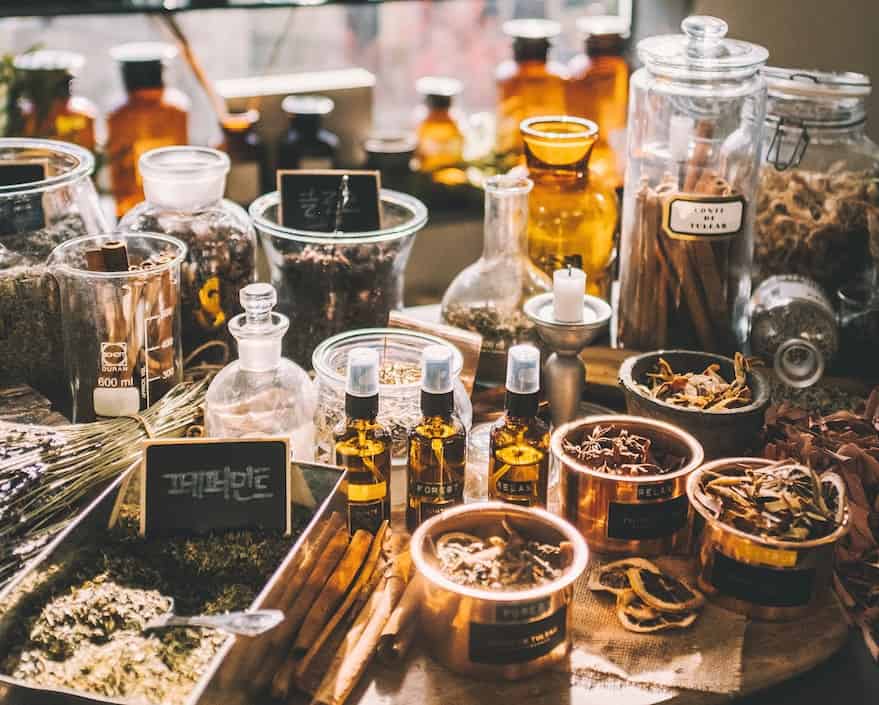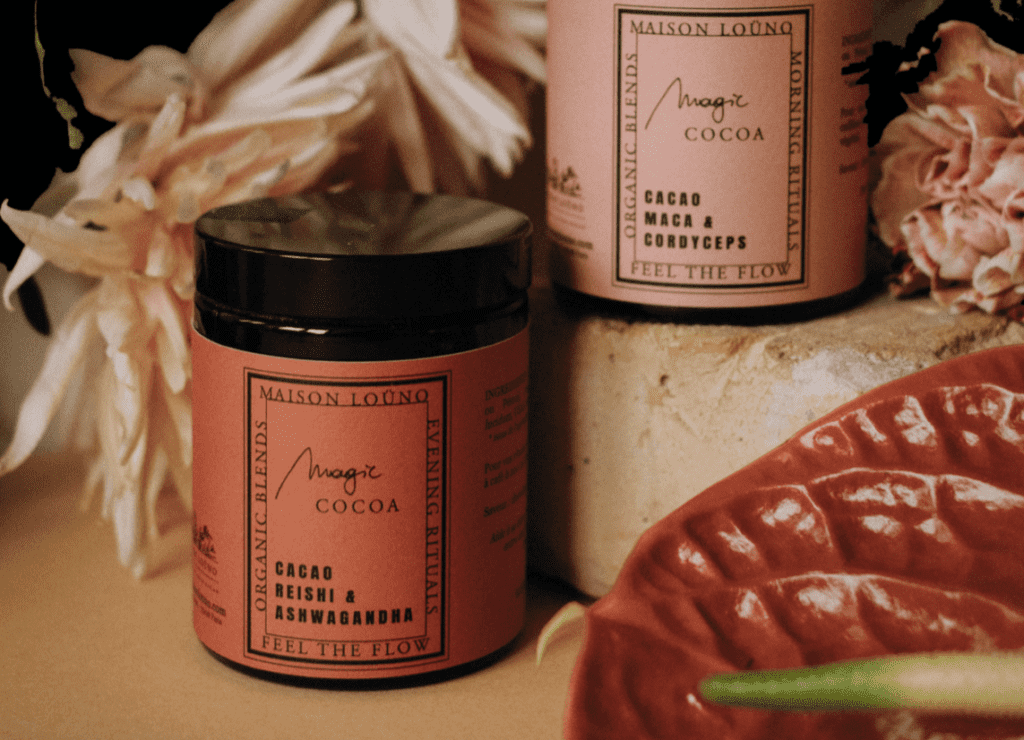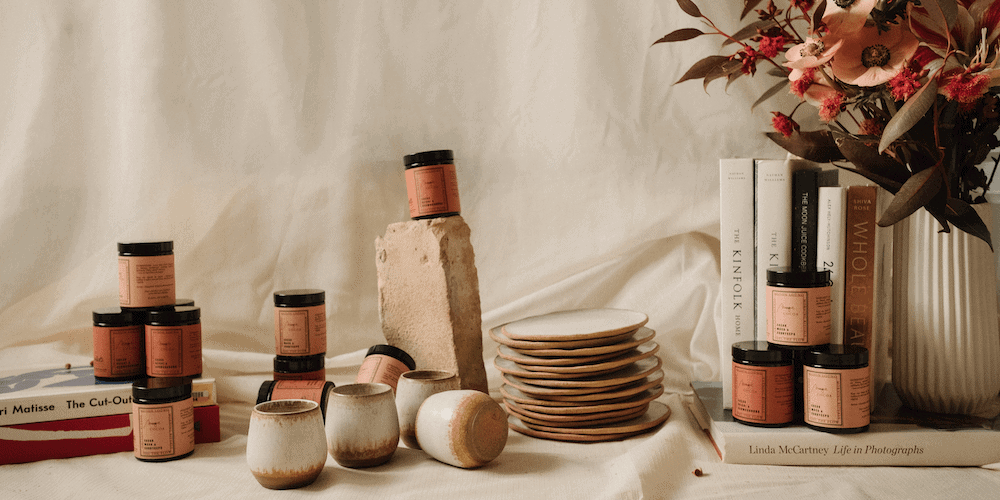What is an adaptogenic plant?
“I discovered adaptogens while I was working at large consulting and finance firms, with an already busy, stress-filled daily life (…) While researching American blogs, I then discovered cordyceps, chaga, ashwagandha and began incorporating them into my daily routine.” Louise Skadhauge, the young founder of Maison Loüno, tells us. But what exactly is an adaptogenic plant?
When you look into natural health, you often come across this category of roots, berries and other mushrooms that, growing in hostile conditions (altitude, extreme temperatures…), have developed a remarkable ability to adapt.
The most notable example is maca, a tuber cultivated in the Peruvian Andes between 3,800 and 4,500 meters above sea level. It withstands high daytime temperatures, nighttime frost, strong winds, and intense climatic changes.
Also read What is an adaptogenic plant?
The concept of the adaptogenic plant emerged in the 1950s, thanks to the research of the Russian pharmacologist Nicolaï Lazarev. He observed that these plants increased the human body’s resistance to various stresses, both physical and psychological.

It was later discovered that an adaptogenic plant also exerts a stimulating effect on the body. In addition, each plant has benefits specific to it (cordyceps, for example, strengthens the immune system, while ashwagandha reduces anxiety).
The list of these plants is not clearly defined. It is difficult to find an authoritative body to establish it, but it is commonly accepted that adaptogens include:
- la maca
- le ginseng
- l’ashwagandha
- le cordyceps
- le reishi
- le chaga
- l’hydne hérisson
- la rhodiola
- l’astragale
- le curcuma
- le moringa
- …
An emerging trend
Chinese medicine, Ayurvedic, and other traditional medicines, in the Andes for example, have long used and championed adaptogens. In the West, the natural dietary supplement industry has been particularly interested in them for several decades. They make up many formulations (capsules or powders), as more and more studies attest to their effectiveness.
But their adaptogenic aspect is not specifically emphasized and is even less placed at the heart of brands. They are used for their general benefits: stimulants, calming agents, energizers, aphrodisiacs…
This is where a new generation of holistic companies comes into play, first in the United States. Think of brands like Sun Potion, which since 2011 has promoted “adaptogens to cultivate your inner and outer radiance“, Anima Mundi Apothecary which highlights adaptogen blends and elixirs, or Pearl Butter which created multicolored adaptogenic spreads.

The New York Times examined this emerging trend in 2018, acknowledging the growing enthusiasm for them but also highlighting the lack of scientific foundation and clarity about them, “even though the science is murky on the subject like a mushroom drink, and these supplements are not regulated by the Food and Drug Administration, that doesn’t stop trend influencers from sharing their alleged benefits, notably support for the adrenal glands, stress reduction, hormone regulation and a general sense of balance.”
Even though many studies validate the benefits of maca (source), ginseng (source), ashwagandha (source), the very concept of “adaptogen” is not universally accepted. Moreover, they need to be consumed over time to start feeling their effects. And their effects, precisely, are not the same for everyone. It’s a long process!
Yet, adaptogens meet the growing demands for natural health. And they fit perfectly with holistic therapies, where you don’t treat a specific symptom but take care of yourself as a whole: physically, emotionally, mentally, spiritually…
Also read the The French endorse natural health
Logically, adaptogens are arriving on the French market. Spotlight on two pioneering startups in the field that cultivate a holistic approach to health, well-being, and nutrition.
Maison Loüno: the creative home of wellness
Louise Skadhauge founded Maison Loüno at the end of 2017. It was during her five years in finance that she searched for and developed natural solutions to combat stress and fatigue. Yoga, meditation, creativity… and food. She developed a gluten-free psyllium bread (she is intolerant), the Morgenbrød. Inspired by a recipe from Denmark, where her parents are from.

Originally intended for her personal use, the product experienced great success when she tested selling it at a Christmas market. She then launched her “creative house of well-being”. And expanded her range of healthy, tasty food products: muffin mixes, granolas, and…adaptogens.
“No one was offering them in France, and I thought it was a shame not to reintroduce these plants that are so precious in traditional Chinese and Ayurvedic medicine. It’s a period of returning to our roots, reintegrating nature into our urban daily lives, and reflecting on our lifestyles. These plants were an incomparable solution for me.”
Faced with the absence of adaptogen blends on the French market, Maison Loüno initially offered American products (Sun Potion, Anima Mundi, which we mentioned earlier). Before creating its own blends: the Magic Cocoa.
These are cocoa-based powders, one for the morning with maca and cordyceps, the other for the evening with reishi and ashwagandha. Presented in glass jars, the idea is to mix, according to your “morning or evening ritual”, a teaspoon of powder into hot water or plant-based milk. They are organic, sourced and personally formulated by Louise, in collaboration with an herbalist. The mixes are blended and packaged in Brittany.

“Our Magic Cocoa were an immediate hit! And we are very proud of them; it was really a big gamble to be the first adaptogen brand in France. But we took the risk, and I am delighted because these plants had a huge impact on my life and I am convinced they can help many others. There are still many questions on the subject, of course. It is also our role to share our experience and the knowledge around us.”
Because well-being is not limited to food and Louise also has an artistic practice, Maison Loüno also offers handcrafted ceramics, pretty stationery, utensils… A diverse and very personal universe followed by a large community on Instagram.
Hygée: Adaptogenic powders as nutritional supplements
This is the newest of the French brands dedicated to adaptogenic plants. Young entrepreneur Ehsane Cassam-Chenai launched Hygée in early 2020, after a background in finance and food-focused startups (Little Gustave, Food Panda). Introduced by his Indian grandmother to various medicinal powders, he is particularly interested in natural solutions that help improve everyday life.

“I wanted to address the little everyday annoyances in a holistic way (…) At Hygée, we design nutritional supplements made from plants, berries and adaptogenic mushrooms. Adaptogens primarily target stress, in all its forms, in order to address specific concerns (vitality, sleep, skin, etc.).”
Adaptogens are Hygée’s core expertise, which offers a thoughtfully designed range of four adaptogenic powders. They target four specific needs: immunity, beauty, energy, serenity. The formulas are minimalist and rich in active ingredients. The energy one, for example, contains ginseng, maca, inulin, açaí berry and moringa.

There too we talk about “ritual” rather than “routine.” The powders are mixed into one’s coffee, smoothie, tea, or juice. We encourage synergies to optimize the effects. The powders are organic and produced in a GMP-certified laboratory in the Drôme. Ehsane developed the products in collaboration with Régis Meyronet, a doctor in chiropractic and nutrition.
“We are still only at the beginning in France. However, there is a real appetite for functional nutrition in the broad sense. There is a growing awareness of the impact of nutrition on long-term health and well-being, and on the choice of ingredients we consume. The period we are going through will, in my view, only reinforce this trend.” he concludes.



